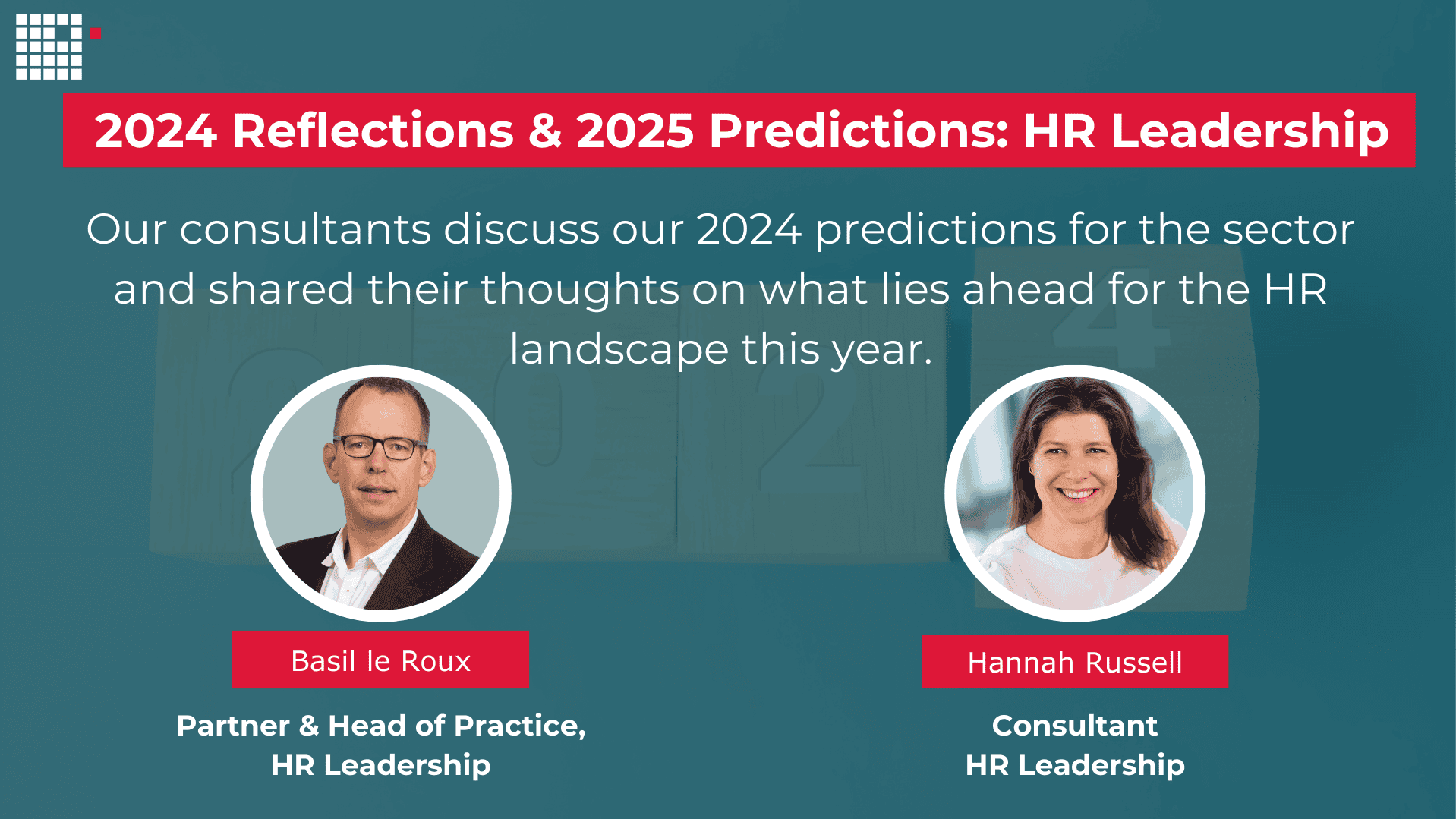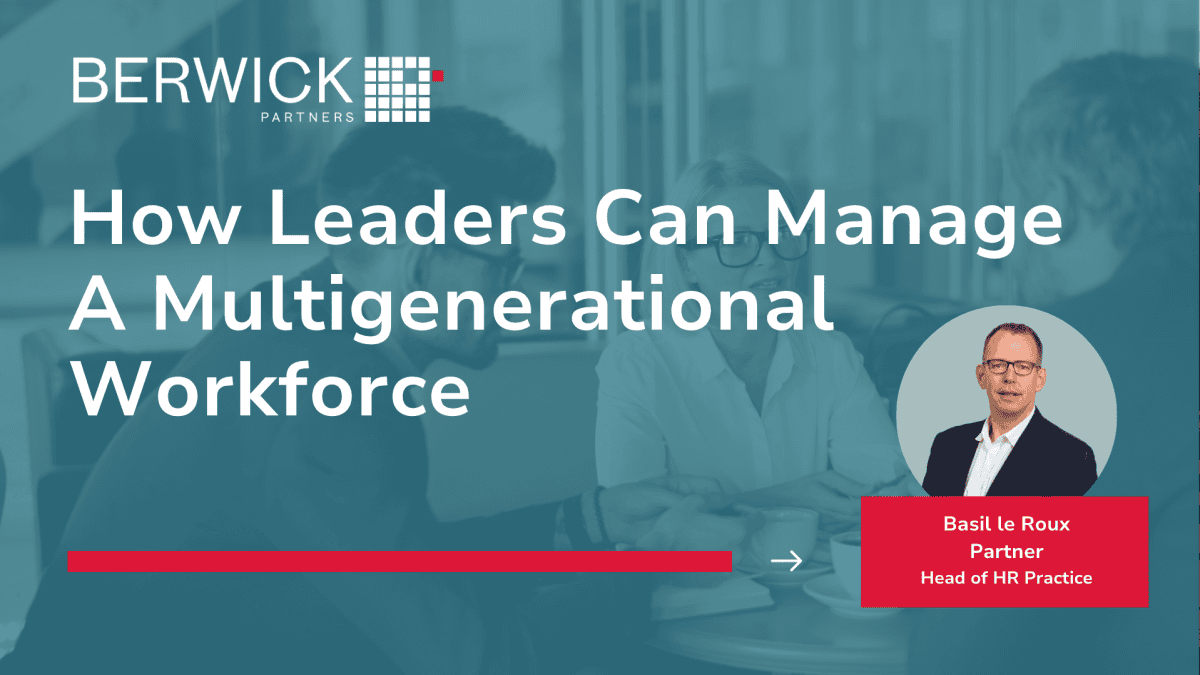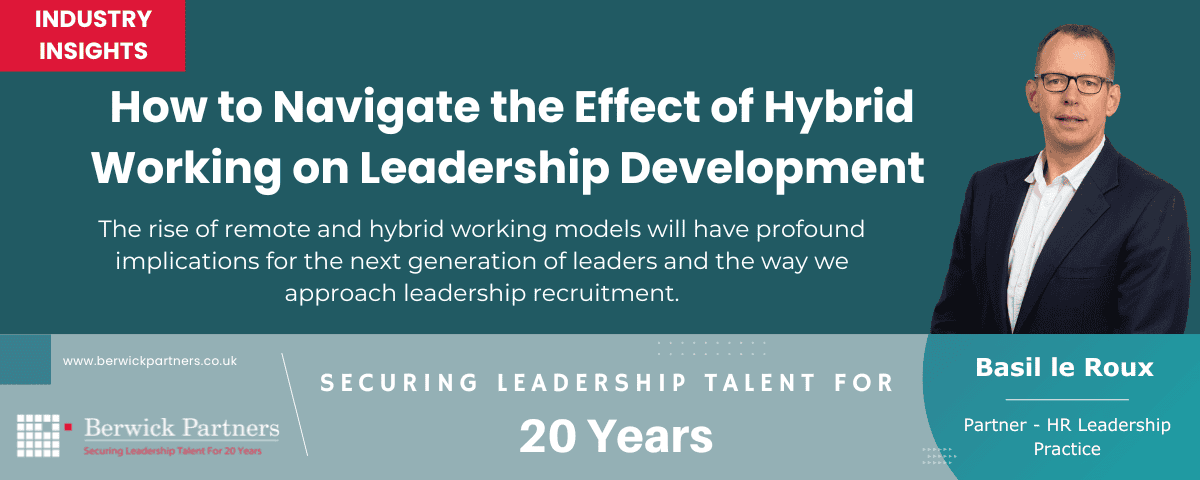Reflecting on 2024 and Looking Ahead to 2025: HR Leadership
As we move into 2025, we are reflecting on the predictions we made for 2024 and how they have unfolded. Our consultants in our HR recruitment practice, Basil le Roux and Hannah Russell, recently discussed these predictions and shared their thoughts on what lies ahead for the HR landscape this year.
Looking back on 2024…
Impact of AI
In 2024, we anticipated that the impact of AI would be felt gradually and then suddenly. While the transformative potential of AI continues to loom, the rapid shift has yet to materialise. Our consultants noted that in many cases the investment climate has not been conducive to widespread transformation, including AI adoption. However, the advance of AI into everyday life is inevitable, as evidenced by the Governments recent announcements and we will soon find ourselves astonished at AI’s impact on the economy and work.
Restructuring
The prediction that companies would need to look at restructuring due to economic pressures has proven accurate. The current economic climate, characterised by an economic slowdown due to inflationary pressures and high interest rates, has led many organisations to seek efficiencies. These have been achieved through targeted restructuring, rather than large-scale layoffs, in part because Business leaders have recognised the challenges faced in hiring talent
Our consultants highlighted that this trend is likely to continue. They also identified that with increases to employer NI and the raising of the minimum wage companies may start to invest more in plant, machinery and technology to streamline operations and drive productivity.
Long-Term Sickness
The issue of long-term sickness remains a challenge. The number of economically inactive individuals due to long-term sickness has continued to rise, including young people, drawing attention from policymakers and employers alike. Our consultants emphasised the importance of supporting these individuals’ return to work and providing managers with the necessary support to assist them. They also noted that while this issue is prominent in certain sectors, it may not be as visible in others, particularly where employees have private medical insurance. In conjunction with this, we have some employers looking at their private healthcare and broader benefits offering.
Return to the Office
While the job market has softened, giving employers more leverage, the transition back to in-office work has been gradual. Our consultants believe that as the job market continues to evolve, employers may adopt firmer expectations regarding office attendance. They also discussed the potential domino effect of major firms like JP Morgan mandating more in-office days, which could influence other companies to follow suit. In some cases, the return to the office is nuanced and particularly for engineering and technology populations, detailed consideration is being given to optimal hybrid home working mix.
Predictions for 2025
Looking ahead, our consultants shared their predictions for 2025:
- AI and Automation: The integration of AI and automation will continue to accelerate, reshaping job roles and organisational structures. The speed of this transformation will depend on various factors, including economic conditions and technological advancements.
- Economic Restructuring: Companies will continue in their efforts to optimise efficiency, potentially leading to further restructuring. The focus will be on balancing cost-cutting measures with maintaining a skilled workforce and reskilling for the future
- Workplace Dynamics: The dynamics of the workplace will continue to evolve, with hybrid work models becoming more entrenched and a gradual return to the office continuing for some organisations. Employers will continue to navigate the complexities of managing a distributed workforce while fostering collaboration and engagement.
- Early Careers Talent Agenda: There will be a renewed focus on early careers talent, driven by the need to address skills gaps and support the development of early career professionals. This includes initiatives around apprenticeships and optimal ways of learning to ensure a robust talent pipeline for the future.
- Changing Demographics: The changing and ageing shape of the population is starting to be on the agenda of UK policy makers and organisations will start to embrace older workers and ‘unretirement’ will gain momentum.
As we navigate these changes, our HR practice remains committed to supporting organisations in enhancing their leadership capabilities and adapting to the evolving HR landscape. For more information or to discuss these topics further, please contact Basil le Roux or Hannah Russell.





